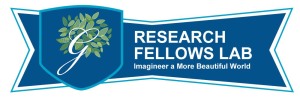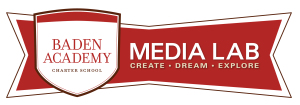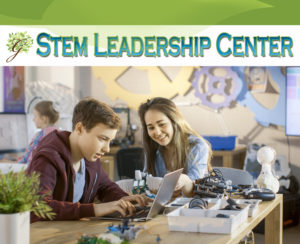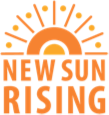Gifted and talented kids and youth, teachers and classrooms (grades 3 to 16) have the opportunity to apply for a Research Fellowship with Grow a Generation. Research Fellows are provided guidance and support to design and follow through on robust and creative projects that ignite their passion and celebrate their unique brilliance. They produce meaningful projects and unique contributions that don’t simply add to their resume but engage them as autonomous and purposeful learners and help them contribute NOW to solving the world’s grand challenges.
Fellows choose from diverse fields of study which pique their imaginations and resonate with their unique talents and individual passions. Their real-world project suggestions must make valuable contributions to the community that will be shared and disseminated with published materials, digital artifacts, competition entries, and teaching opportunities.
Once accepted into the program, research fellows engage in projects that instill and strengthen a 21st Century skill set of innovation, critical thinking, collaboration, emotional intelligence, resilience, leadership, and vision. A statement of goals and objectives is developed that identifies and applies skills and insights from multiple fields of study (e.g. science, technology, engineering, math, robotics, game design, medicine, energy, entrepreneurship, and leadership).
Research Fellows meet weekly (online or in a lab setting) for group discovery and collaboration. An annual Imagination Celebration marks the celebration of accomplished goals and a time to pause, evaluate and redesign goals for the future.
MENTORS
Mentors from around the globe are solicited to assist our research fellows as they face the challenges of their project. Mentors communicate their own experience and take special interest in helping each fellow develop into a successful professional with unique interest and skills in their chosen field. Media Lab Research Fellows’ mentors are specifically expected to:
-
Help the Research Fellow arrive at clearly stated goals and objectives of any proposed research projects;
-
Monitor the fellow’s research experience at least once a quarter to discuss progress, results and plans for next steps;
-
Complete formal evaluation forms at the end of the school year.
Research and Teaching Mentors are also invited to join the fellows at an annual celebration at the end of the school year. Past mentors include the National Oceanic and Atmospheric Agency, RoPro Design, Software Engineers from Fed Ex, Beaver County Humane Society, ASPCA, Dream Flight Adventures, Beaver County Youth Entrepreneurship Network, Lincoln Learning Solutions, BeautyCounter, Park Rangers and Conservation Officers from New South Wales Australia, the Pittsburgh Zoo and PPG Aquarium, the Marine Mammal Center, and Pittsburgh Filmmakers.
WHAT IS YOUR CHILD PASSIONATE ABOUT?
Peter Diamandis has been named one of “The World’s 50 Greatest Leaders” by Fortune magazine. He says that the single most important attribute for young people to develop is passion and curiosity. Children, teens, teachers and classrooms are taking advantage of exponential technologies, the DIY movement and an interconnected billion strong internet to help solve many of the world’s grandest challenges. The Baden Academy Media Lab provides the opportunities and resources for fellows to explore their passions, discover their element, ignite their spark and experience flow.
What are your passions? Contact Dr. Ellen Cavanaugh for opportunities to attend a Find Your Passion camp to discover what sparks their passions and gives breadth to their unique brilliance. If you have already have an idea of a project you wish to pursue, you can request to meet one-on-one to refine your application proposal. Apply today to the Research Fellow program and let us help you create a more just and beautiful world through meaningful projects.
AUTHORS AND E-COMMERCE ENTREPRENEURS
Grow a Generation authors create books with leading scientists, academics, and professionals about topics they are passionate about. We have learned the best collaborations come when students tell real world stories about scientists, researchers, and entrepreneurs working at the cutting edge of modern technology. Once the books are written, student explore e-publishing, e-commerce and merchandising. Examples include:
- Gavin Phillips, now in 7th grade, has authored Saving a Galapagos Penguin Family and The Little Blue Penguins of North Sidney Harbour, and The King Penguins of the Falkland Islands. Proceeds from his books benefit the United States National Aviary, the Foundation for National Parks and Wildlife in Sydney Australia, and the Pittsburgh Zoo and PPG Aquarium. Mentors have worked with Gavin (online from around the world) to oversee the scientific and cultural accuracy of his children’s books.
- Jaylee Duncan, also in elementary school, partnered with the Marine Mammal Center to write Angie’s Tale: What Happened to Her Flipper? which tells the story of a heroic rescue of a sea lion, the amputation of her flipper, and the concern of a community to set her back in the wild.
- Kelli Keriotis’ kindergarten students each claimed a unique historical Crayola color, began with paper and crayon drawings and went on to create with the RGB computer color codes with Google Drawings. A Colorful Kindergarten illustrates their discoveries of color, its history and its expression.
- Other authors have included Kate Huoy The ABCs of Veggies, Veronica Judt and Kamryn Vilscek Hamster Fun Facts, Ava C, Brett B, and Quincy S Don’t Smoke, Isabella Kelm Dolly the Dolphin, Caleb Markovitz and Ian Cavanaugh What Do you Mean I’m in Charge: Leadership Skills for Teens, 4th grade classrooms of Brenden Finn and Sara McMillen Storm Stories, and 2nd grade classrooms of Finniotis Barackage Totem Tales.
Books are published through Lulu, a print on demand site, which then distributes them globally through sites such as Amazon and Barnes and Noble. Authors make commercials, create products such as tee shirts, 3-D printed figurines of their original artwork, and learn to submit press releases and hold book signings.
DIGITAL STORYTELLERS
Digital Storytellers create videos, vlogs, games, and animations to inform and inspire worthy work being done by non-profits, foundations, and amazing scientists around the globe (and in space!). Examples include:
-
- Kadie Belic and Owen Bonini’s website Baden Dreams raises funds for the Baden Academy PTP. The website enables our own research fellows to feature their artwork on posters, coffee mugs, iPad covers, key chains, and 3D printed pendants and figurines. The team is mentored by the Beaver County Youth Entrepreneurship Collaborative. The have learned how to digitize art, market it through a WordPress website, and track analytics.
- Brynn Burnsworth, Kaitlyn Desrochers, and Sammie Patton developed the BACS Book Review website and worked with Samantha Lesak to develop rubrics for classrooms to post student written book reviews and monetize the site by raising money through Amazon Associates for the school’s purchase of new books.
- Miriam and Jadyn are the Kitty Whisperers with their own YouTube Channel and the goal of raising awareness about the crisis of feral and free roaming cats.
- Kamryn’s website K2k Activities provides an online tool for parents and educators that wish to help older siblings and parents develop into positive role models and empathetic, dynamic leaders.
- Other Digital Storytellers include Anthony Speicher and Christopher Denkovich lunchwithchemistry.weebly.com website that celebrates molecular gastronomy, the Amazing Animal AppMaker videos made by Isaiah Harschman, Carter Catalano, and Hoby Schweikert for the Living Treasures Animal Park, the Cute Cooking Kids Videos by Julia Fawcett, Riley Kumer, and Sarah Ake made for children home alone, Will Ritchie and his Mobile App BACS Fellows 2015; Ted Ed Club speakers including Owen Rossi-Keen RFID Bussing, Kadie Belic Dream Bigger, Courtney Webster and Elise Probst , Dru Sayre and Glorian McDaniel The Internet of Things, Charlie Houston and Ava Skender Collaboration is Hard, Brett Bartholememy and Quincy Sirkos Don’t Smoke, Timothy Snyder It’s a Brick, Aleenia Reich Leading Others to Serve and Aderyn McLaughlin This is a Dragon Tag; i5 Digital Video Competition entries such as The STEAM Elements of Baden Academy’s Charlie and the Chocolate Factory made by Evan Huoy, Nathaniel Curry, Aidan Ford, John Ake, and Carrie Kennedy and Butterfly Girl made by Eli Lishack; Aderyn McLaughlin’s website for the 3rd grade science experiments with RFID technology, and the BACS Science Fair website made in collaboration between teachers and the media lab.
Digital Storytellers create websites with Weebly and WordPress, games and animations with Scratch, mobile apps with MIT App Inventor, and videos with equipment in the lab (or at home) edited with either Premiere or Camtasia.
STEM ATHLETES
STEM Athletes serve as a 21st century look at leadership, where leaders need to use business, economic and communication techniques based in analytics, crowd sourcing, and frequent iterations based in user feedback. Leadership opportunities are available in meaningful Engineering, Robotics, Game Design, and App Development team competitions and Student Service clubs.
- Matt Esser, Giovanna Esposito, Luc Madonna, Veronica Muth and Chris Virostek entered the Verizon Innovative App Challenge and won Best in Nation, $20,000 for Cardinal Wuerl North Catholic, and an all-expense paid trip to the National TSA Conference with their mobile app SafeSpeed.
- The Nerd Battalion (Elise Probst, Calla Walker, and Jacob Webber), our student IT support, is an afterschool club that calls upon one technology student in each classroom to attend and master tech skills to help the teacher troubleshoot and better utilize technology in the classroom. Leaders choose the learning objectives, evaluate resources, and teach while evaluating the progress of the students.
- The Take Action Club (Aleenia Reich and Sara McMillen), previously known as the Free the Children club, is an afterschool club finding a way to empower children struggling with poverty to overcome and find a solution to their struggles worldwide. The leader sets the agenda and facilitates each meeting and oversees communication.
- The Dragon Tag Programming Club (Dru Sayre, Glorian McDaniel, and Anna Wagenhofer) is working toward empowering students to understand ‘under the hood’ the PHP and HTML of our dragon tag software and edit when needed. In addition, they are working toward earning certificates of learning from various coding schools. Leaders set the agenda and facilitate each meeting and oversee communication.
- Other STEM Athlete Research Fellow projects have included Future Cities Competition Team with Brenden Finn, Tim Snyder, and Tim Bayne; the Chess Club with Skylar Reese, and STEM Video Game Competition with Eli Lischack and James Ritchie.
Other opportunities exist for teams interested in leading an afterschool learning club or competition team MIT App Inventor, STEM Video Game Design Challenge, 4-H Club, Robotics 101, Future Engineers, i5 STEM Video Competition, and TED Ed Club.
MEETINGS
The Grow a Generation Research Fellows will meet once a week with their project leader. The first few sessions will include setting up a specific mission and the online files for correspondence. Fellows will have access to collaborative online tools that enable them to work with a mentor to develop their idea or concept and set up a realistic timetable and steps needed to complete their project. Additional support is available during the week as questions arise. Participation in the Fellows program is dependent on your continued academic diligence.
CLICK ON THE ICON TO LINK
TO THE APPROPRIATE APPLICATION:
Application Process:
Submit to Dr. Ellen Cavanaugh
• An Application
• A letter from the student requesting admittance to the Research Fellows Program
• A project proposal that features the research question or problem the applicant wants to explore and the project (book, website, film, video game, mobile app, software program, robotic device, CAD design, or STEM competition team) they plan to create to respond to that problem. It is strongly recommended you discuss your project proposal with Dr. Ellen before submitting.
• Two letters of recommendation from teachers/administrators.
Applications are accepted once a year. The deadline for admittance to the 2016–2017 Research Fellows program is September 25, 2016. Students will receive notification via an email no later than one week following the submission deadline. We will accept up to 30 total projects for the 2016–2017 program. If a student’s research proposal is not accepted, they may be offered a chance to work as a team member or research assistant to another project. Those accepted into the research fellow program will be scheduled once a week to develop a research plan and learning agreement, and receiving support to achieve their goals. Additional times will be scheduled as needed.
Application materials to the Research Fellows Program can be submitted to drellen”at”growageneration.com.
The letter requesting admittance to the Research Fellow Letter requesting admittance to the Research Fellows Program should demonstrate their ability to communicate. Research Fellows are expected to communicate with mentors and the media in a professional and respectful manner. Please help them construct a letter requesting admittance to the Research Fellow Program. The letter should include their commitment to keep up excellent work in their academics, be a team player, an understanding they will be required to work hard to finish the project outside of school time, present their project to others, and share their discoveries for the benefit of those they are choosing to serve. The letter should be addressed to: Dr. Ellen Cavanaugh (drellen”at”growageneneration.com)
The Project Proposal must serve a greater purpose. Profits made from the development of intellectual property and manufactured goods must be administered by Grow a Generation and donated to a non-profit entity. Applicants should write an abstract and description of the ideas they are most interested in pursuing (these can be original ideas, the desire to join a team, or the desire to form a team) The paragraph should include a driving question, the problem it seeks to address, reference to some of the research they did, and how it will benefit the community. Please submit the proposal with the application. It is recommended you talk with Dr. Ellen before submitting your proposal.
Letters of recommendation should identify your child as achieving good academic standing, able to collaborate with others, and strong enough to persevere in the hard work to see a project through to its conclusion. Letters of recommendation should be sent to Dr. Ellen Cavanaugh (drellen”at”growageneration.com).





